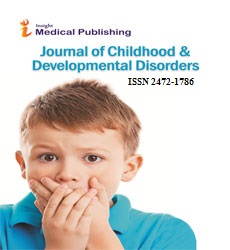Abstract
From Behavior to Biology: Examining Oxytocin and Social Cognition in Preschoolers with and without Autism Spectrum Disorder
Oxytocin (OXT) has been implicated in the social difficulties evidenced in autism. Given this, the current study characterized OXT concentration levels and social cognition in preschoolers, ages 3-5, with either ASD (n=18) or typical development (TD; n=21). The two samples did not differ in OXT concentration levels, however, children with ASD had significantly lower social cognitive ability. Within the TD sample, sad emotion recognition was the largest significant predictor of OXT levels. Within the ASD sample, aggressive interpersonal acts in play accounted for the largest variance in predicting OXT concentration. Results do not support the “OXT deficit hypothesis” in ASD but suggest that oxytocin may have unique relationships with social cognition across diagnostic categories.
Author(s):
Olena Zyga*, Sandra W. Russ and Anastasia Dimitropoulos
Abstract | Full-Text | PDF
Share this

Google scholar citation report
Citations : 504
Journal of Childhood & Developmental Disorders received 504 citations as per google scholar report
Abstracted/Indexed in
- Google Scholar
- China National Knowledge Infrastructure (CNKI)
- Directory of Research Journal Indexing (DRJI)
- WorldCat
- Publons
- Geneva Foundation for Medical Education and Research
- Secret Search Engine Labs
- Euro Pub
Open Access Journals
- Aquaculture & Veterinary Science
- Chemistry & Chemical Sciences
- Clinical Sciences
- Engineering
- General Science
- Genetics & Molecular Biology
- Health Care & Nursing
- Immunology & Microbiology
- Materials Science
- Mathematics & Physics
- Medical Sciences
- Neurology & Psychiatry
- Oncology & Cancer Science
- Pharmaceutical Sciences

